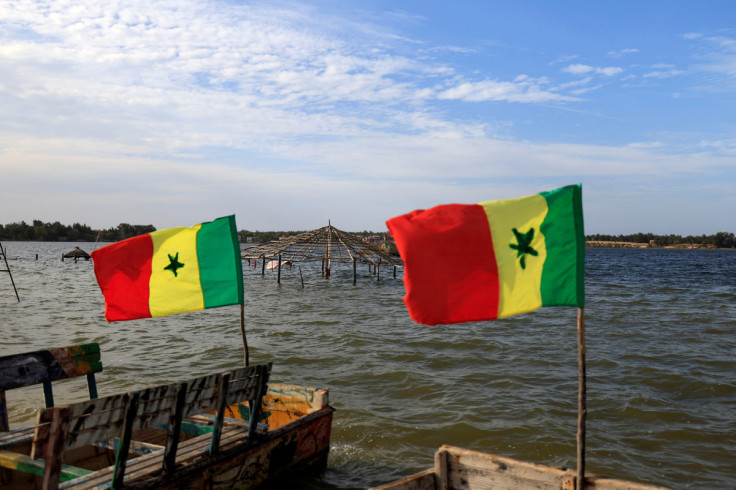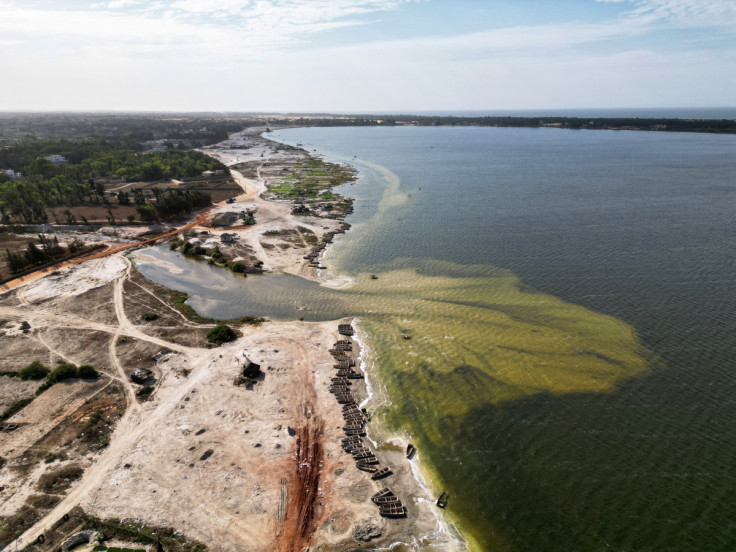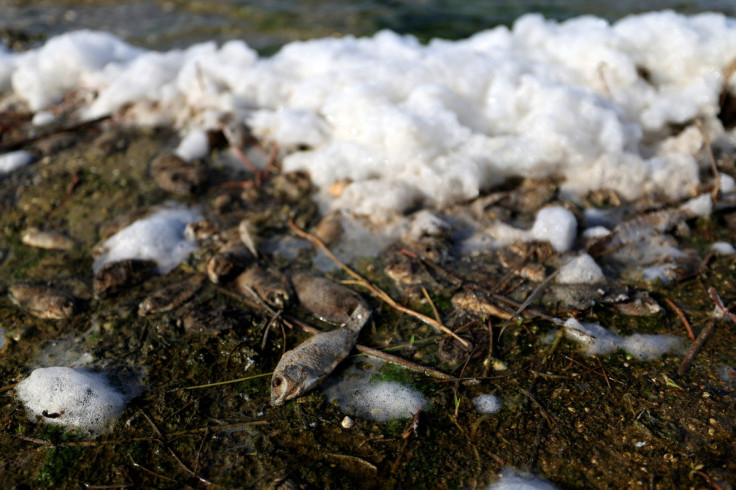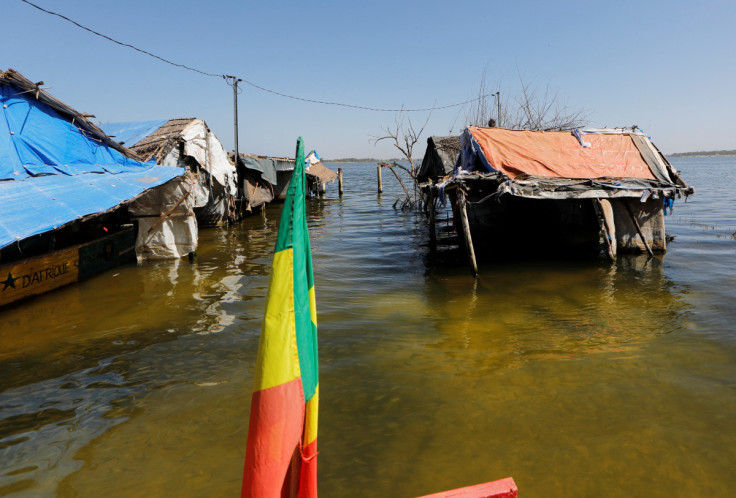Life's No Longer Rosy At Senegal's Pink Lake After Floods

On the shore of Senegal's Pink Lake, salt farmer Pape Sira Ba has raked in what he fears may be his last harvest.
Extreme floods contaminated the 3-square-km lake five months ago, turning its famous waters green and threatening thousands of people who depend on it for their livelihoods.
Officially known as Lake Retba, the lake's high salinity and rare microbiome long-fostered an algae that turned it a pinkish colour, making it one of the West African country's most visited attractions and under consideration as a UNESCO World Heritage site.
Everything changed last September when torrential rains hit the capital Dakar 30 kilometres (18 miles) away and swept flood waters towards the lake, tearing a wide channel in its bank. The deluge washed away countless carefully tended salt mounds and submerged the stalls of trinket vendors and other tourist businesses perched on the shoreline.
"This is the first time we've seen so much water flow in here," Ba told Reuters last month, as he and others hacked with pick axes at a salt pile next to the lake.
Nearby, the new wide channel spewed brownish-green water into the lake whose shore was dotted with dead fish.
The flooding destroyed 7,000 tonnes of salt worth around 420 million CFA francs ($696,000), according to the Lake Retba salt extractors association. Ba now fears the changed composition of the lake will make further harvests impossible.
"What happened is unprecedented," he said, as mud-coloured waves lapped the shore behind him.
The salt farmers are among 3,000 people who lived off the lake. Boatmen and souvenir sellers also fear for their future if the waters fail to recapture their famous hue.
"It was the pink colour that brought the visitors," said Abdou Dieng, who opened a small campsite and boat hire business next to the lake in 2019 to help pay his art school fees. Now the campsite is under water.
It's peak tourist season in Senegal and the lake's pink tone is usually particularly vibrant from late January to early March during the dry season, but Dieng and others have been waiting in vain beside their pink flat-bottomed boats.
"The over-salinisation of the water also allowed visitors to float on top of the lake like in the Dead Sea. Currently, we have no customers," said Dieng.
The ongoing influx of sediment-heavy water could permanently change the lake's unusual ecosystem, hydrologist Cheikh Youm told Reuters.
"The elements that live there and are responsible for the pink colour are linked to this extreme environment. If the environment is diluted, these elements will disappear," he said.
"This would amount to a death warrant for the lake."
The flood waters are slowly receding around the souvenir and crafts market at the lake, but vendors are still worried.
"We really don't have any hope that this place will become like it used to be," said Ndeye Thiam. She was selling bags, fans and trinkets from a line of stalls by the lake, but there were few visitors around to give her business.
($1 = 603.2800 CFA francs)
(Editing by Alessandra Prentice and Susan Fenton)



© Copyright Thomson Reuters 2025. All rights reserved.





















